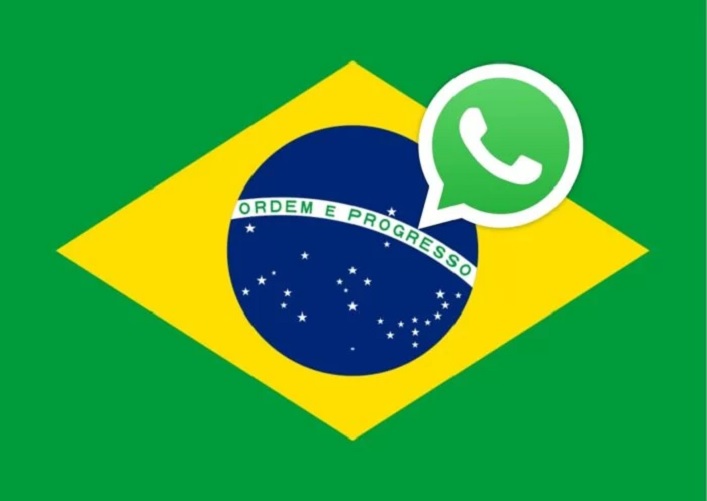The messaging app WhatsApp in Brazil is a unique case worldwide. The study Digital Brazil 2022, conducted by the companies We Are Social and Hootsuite, showed that at least 165 million Brazilians use the tool, the highest penetration in one nation on the entire planet.
With an eye on this potential, Meta, owner of Facebook and Instagram, which bought WhatsApp for US$19 billion in 2014, hired a director for the first time to run the Brazilian operation and accelerate the company’s monetization.
Guilherme Horn, who had a career in the financial market (Órama Investimentos, Banco BV, and Ágora brokerage), took over in March with this challenge. In practice, he says, WhatsApp will become profitable for what it has always offered: messages. For individuals, the tool will remain free. The resources will come from companies.

“Business messaging is a simple and new concept. It is to extrapolate the relationship of conversations that Brazilians have as individuals to companies. The consumer is tired of cold apps or websites in which they don’t talk to anyone or get a recommendation. ‘Conversational commerce’ is going to be a new business channel,” says Horn.
WILLINGNESS TO TALK
The number of companies of all sizes that use the tool for advertising product catalogs, talking to customers, and closing deals via messages is increasing.
According to a survey commissioned by Meta for Kantar, a market research company, 77% of Brazilians want to talk to companies, and 70% already exchange commercial messages at least once a week.
Another 75% are willing to do business with those who can be contacted using the application.
The survey was conducted online in April this year in 11 countries: USA, France, Germany, UK, Spain, India, Mexico, Brazil, Indonesia, Thailand, and Vietnam. It interviewed 5,504 adults aged 18 to 65, representing this market’s online population.
On the global average, 68% said they like to talk to companies by message, and 66% close deals. In other words, Brazil is above average.
Horn observes that it is a two-way street: companies have also realized that this channel can be efficient in sales and are increasing their presence there.
For example, companies that advertise on Facebook and Instagram have already put a chat channel on WhatsApp so that the customer can talk to a salesperson, the so-called click-to-message.
According to data released by Meta this year, 40% of advertisers worldwide already use this format.
Large companies connect to the WhatsApp messaging system (and pay for it) via API, which allows the platform to know exactly what the customer wants. Banks already offer financial products through this channel, including credit, as is the case of Banco do Brasil.
The customer can simulate payment terms, maturity, and value of the installments in a WhatsApp conversation.
According to BB, since June, they have already offered R$1.6 million (US$311,000) in loans. You can also check your balance, statement, and credit card bills and make transfers, payments, Pix, and renegotiate debts through WhatsApp.
BUSINESS PREMIUM
According to Meta, the number of businesses using the WhatsApp API has more than doubled in Brazil during the pandemic. The list includes Magazine Luiza, Renner, and Natura.
The goal is to clarify doubts about products, but sales also happen. In Brazil, 13 million people already access company catalogs through WhatsApp.
Fleury Laboratory has used the application to relieve some units. Using WhatsApp, the customer fills in their details, speeding up the service.
Horn reveals that 5 million small and medium-sized businesses are users of WhatsApp Business in Brazil, which is free.
At the height of the pandemic, the app helped this group to showcase their products and start digital sales.
So when it went offline at the end of 2021, many people lost out. There will be no changes in this segment: the free version continues.
But the Business Premium version will be launched for small and medium-sized companies that need more resources.
It will be a paid version. For example, increasing the number of salespeople to serve will be possible. In the free version, there is a maximum of four.
Another function under development is payment through the application. Today, individuals can transfer money through WhatsApp using Facebook Pay. Soon, paying for purchase through the tool will be possible – it has already started in India.
The functionality is in testing, and the Central Bank has already approved the “arrangement” with WhatsApp’s participation. According to Horn, there is no interest in the ATM market.
He also rules out the return of the subscription service. It existed until 2013, before the purchase by Meta, but the value was symbolic: US$1 per year. The company also has no plans to put advertising in the application or to monetize it with electoral marketing.
WhatsApp prohibits mass messaging and limits groups to 256 participants to prevent this type of use, Horn recalls.
PASSING ON COSTS
For Arthur Igreja, a specialist in technology, innovation, and trends, the potential for monetization of WhatsApp via businesses is enormous.
Meta, he says, has been studying these alternatives for some time since if it charged individuals, there could be a migration to other applications.
But he notes that companies tend to pass on the part of the cost of these services to the consumer:
“Meta decided to put the toll for companies to pay. But they will pass on this price to the end user.”
About the dependence that small and medium-sized companies have on WhatsApp, Igreja points out that they need to have different channels for customer relations:
“Even concerning the WhatsApp payment tool, which is still to be launched, many people prefer an invoice, Pix, or DOC bank transfer. Companies also have to have different payment channels.”
With information from O Globo

